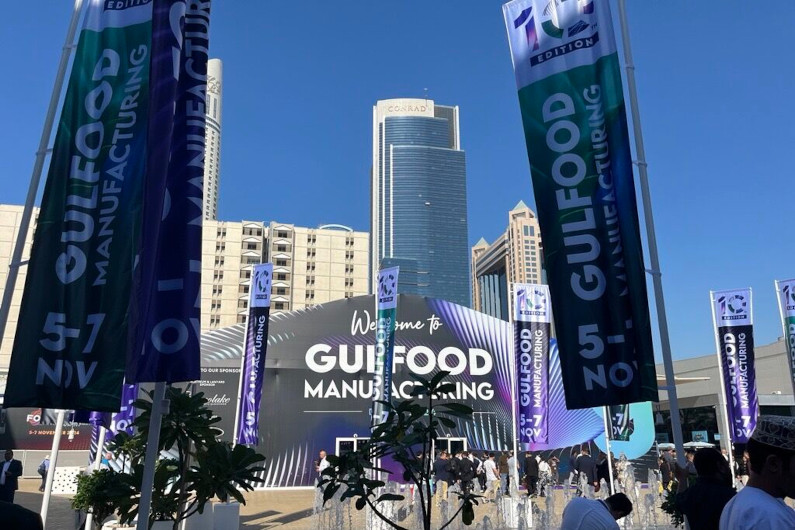
More than 2,500 leading F&B manufacturing brands are attending Gulfood Manufacturing, 25% of them new to show. 90% of the world’s manufacturing brands are in Dubai for the largest installment of the Middle East event, the organizers announced.
Taking place at Dubai World Trade Centre from November 5-7, 2024, this edition brought together over 2,500 exhibitors from 70 countries, spanning 19 halls and a space of 1 million square feet. This is an overall growth of 30% compared to previous editions.
All sectors of food manufacturing are represented at the exhibitors’ stands, from processing, packaging, and ingredients to supply chain solutions and control and automation. The latest innovations and advances enhancing efficiency, sustainability and profitability are highlighted, this year including food biofortification, AI-driven ingredients, nanotechnology in packaging, precision fermentation, and smart supply chains.
Trixie LohMirmand, Executive Vice President of Dubai World Trade Centre, commented: “As we celebrate this milestone tenth edition of Gulfood Manufacturing, we reflect not only on the remarkable growth and innovation within the food manufacturing sector over that time, but also the forces such as Industry 5.0 that are shaping the future of food production and processing. The scale of this year’s show reflects the industry’s ever-growing demand for cutting-edge solutions that address sustainability, innovation, and efficiency challenges. We are committed to fostering these conversations, bringing industry leaders together, and driving the transformation of the global food manufacturing landscape.”
At the FoodTech Summit, over 100 industry experts from around the globe are speaking on the latest trends, innovations and challenges in the F&B industry.
Dr. Mark van Rijmenam, an international thought leader on digital transformation and cutting-edge technologies, gave a keynote speech on the first day exploring how AI is revolutionizing food processing, enhancing automation and enabling the use of digital twins to optimize production. He also addressed potential risks, such as data privacy concerns and the ethical use of AI.
Photo: LinkedIn


